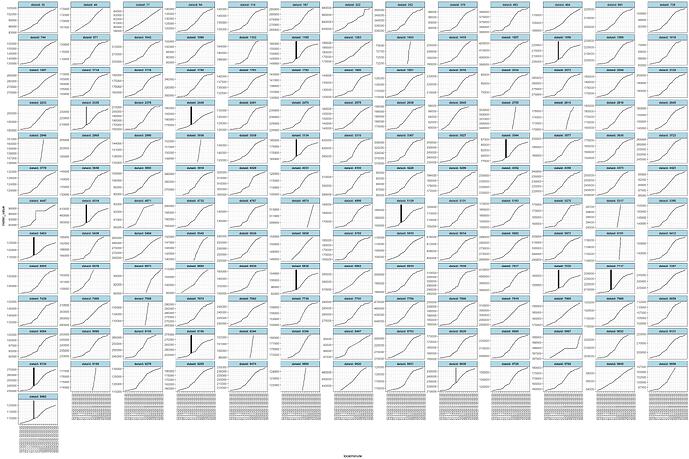I am new to R. I am analyzing export Wh, data for my project.
Original csv file (org_data.csv) that I m analyzing can be found in this link:
[https://drive.google.com/open?id=12a3EfbSKKuPRAYUC-c58tbnBaiVlweVI ]
In the original csv file, there are 1,584,823 total records, with 157 meters.
Recorded from 1-Oct-2015 00:00:00 to 31-Mar-2016 23:59:59
In the csv file, there are three columns: local minutes, dataID, meter_value.
- Local minutes is formatted with “yyyy-mm-dd hh:mm:ss-UTC
time offset”. - dataID represents the ID number for each 157 meter,
- meter_value represents the export Wh
Quick view of original csv file, as below:
localminute,dataid,meter_value
2015-10-01 00:00:10-05,739,88858
2015-10-01 00:00:13-05,8890,197164
2015-10-01 00:00:20-05,6910,179118
2015-10-01 00:00:22-05,3635,151318
2015-10-01 00:00:22-05,1507,390354
2015-10-01 00:00:29-05,5810,97506
2015-10-01 00:01:18-05,6910,179118
2015-10-01 00:01:34-05,6910,179118
2015-10-01 00:01:38-05,5810,97506
2015-10-01 00:01:43-05,4352,218216
2015-10-01 00:01:46-05,484,99298
2015-10-01 00:01:56-05,1718,161076
2015-10-01 00:01:58-05,1714,147048
I have done plotting the existing data of all the 157 meters using facelet
But I stuck in writing algorithm for predicting export Wh of all 157meters (From 01 Apr 2016 00:00:00 to 31Dec2016 11:59:59).
May I know how should I develop forecasting model for all 157 meters, with this UTC time offset?
As i have to submit this prediction algorithm by 20-Oct-2018. I am grateful if you guys help me.
